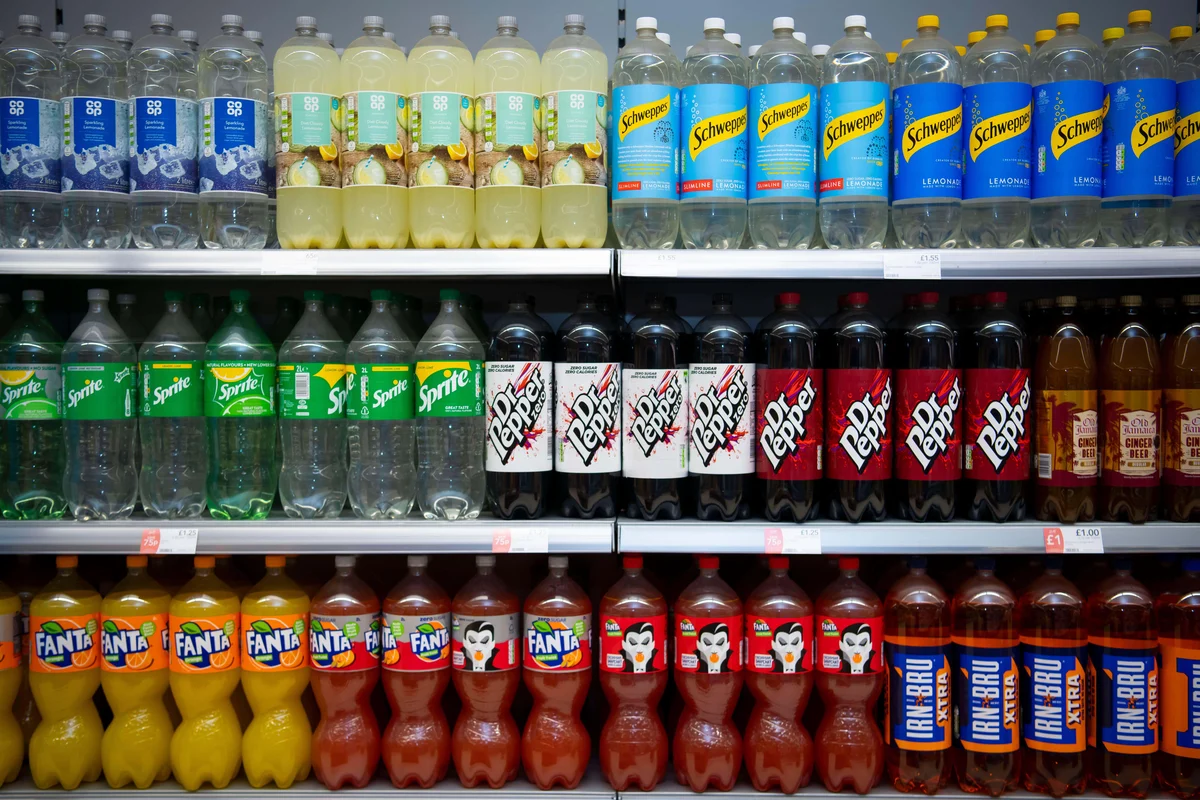By Arielle Domb
Copyright standard

Drinking one can of an artificially sweetened drink a day can lead to a higher risk of liver disease than a sugary drink, new research has revealed.
Metabolic dysfunction-associated steatotic liver disease (MASLD) is a medical condition where fat builds up in the liver. It affects more than 30 per cent of people around the world.
The British Liver Trust estimates that MASLD may now affect as many as one in five people in the UK, however experts say the true figure could be as high as 40 per cent.
Approximately 80 per cent of those with the condition are undiagnosed, because it doesn’t always have symptoms or the symptoms are mistaken for something else.
The results of the new study, presented at the United European Gastroenterology Week in Berlin, compared the impact of sugary versus non-sugary drinks.
Researchers found that drinking SSBs raised the risk of MASLD by 50 per cent, while low or non-sugar-sweetened beverages (LNSSBs) increased the risk by 60 per cent.
The study involved 123,788 participants in UK Biobank who didn’t have liver disease over ten years. Beverage consumption was measured using repeated 24-hour dietary questionnaires.
“Sugar sweetened beverages [SSBs] have long been under scrutiny, while their ‘diet’ alternatives are often seen as the healthier choice,” said lead study author Lihe Liu, a graduate student in the department of gastroenterology at the First Affiliated Hospital of Soochow University.
She added: “These findings challenge the common perception that these drinks are harmless and highlight the need to reconsider their role in diet and liver health, especially as MASLD emerges as a global health concern.”
In sugary beverages, sugar “can cause rapid spikes in blood glucose and insulin, promote weight gain and increase uric acid levels, all of which contribute to liver fat accumulation,” Liu said.
Artificially sweetened drinks impact the liver by “altering the gut microbiome, disrupting the feeling of fullness, driving sweet cravings and even stimulating insulin secretion”.
Artificial sweeteners may have other negative health impacts.
Some studies have suggested that there could be a link between consuming aspartame and developing cancer, however, other studies have shown no link or found the results to be inconclusive.
The study’s authors said that replacing both sugary drinks and non-sugary sweetened drinks with water can significantly reduce the risk of liver disease.
“The safest approach is to limit both sugar-sweetened and artificially sweetened drinks,” Liu said.
However, the full study has not been published in a peer-reviewed journal yet, so we don’t know the limitations of the research.
The study also doesn’t show that consumption of these drinks causes liver problems.
And as Medical News Today points, “the UK Biobank is has its own limitations too, including the fact that it includes primarily white participants, and they tend to be healthier than the United Kingdom’s general population.”
“The next step is to complete and submit the full manuscript for peer review and publication, which will allow the scientific community to scrutinize and build upon our findings,” Liu says.
She adds: “Looking ahead, more research is needed to clarify the biological mechanisms linking artificially sweetened beverages to liver disease, and to explore whether different types of sweeteners carry different risks. Long-term studies in more diverse populations will also be important to strengthen the evidence base.”